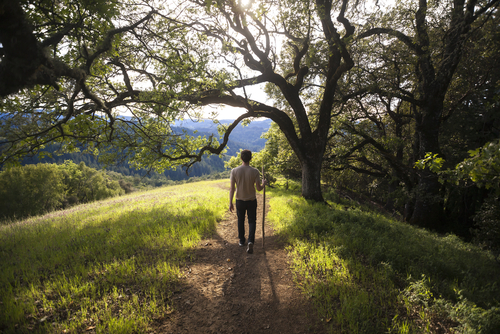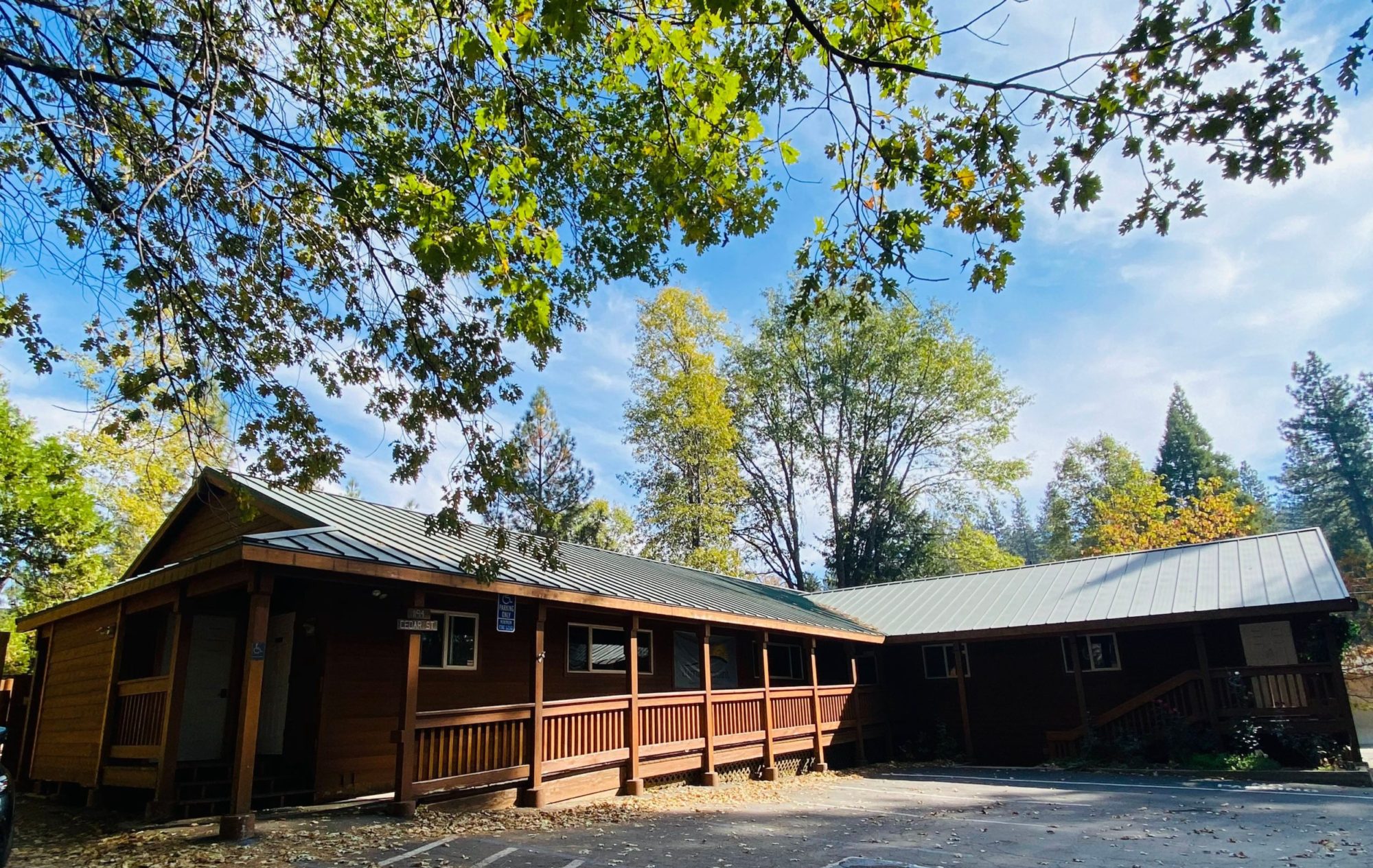 At Turning Point of Arnold, you’ll find yourself nestled in the heart of the Sierras, surrounded by beautiful mountains and crystal clear lakes. Our beautiful and serene location gives our clients access to miles of trails for hiking. Hiking can be a powerful form of experiential outdoor therapy, and that is why we incorporate hiking in our residential treatment programs. Here is a look at how hiking in the Sierras can strengthen your recovery from drug or alcohol addiction.
At Turning Point of Arnold, you’ll find yourself nestled in the heart of the Sierras, surrounded by beautiful mountains and crystal clear lakes. Our beautiful and serene location gives our clients access to miles of trails for hiking. Hiking can be a powerful form of experiential outdoor therapy, and that is why we incorporate hiking in our residential treatment programs. Here is a look at how hiking in the Sierras can strengthen your recovery from drug or alcohol addiction.
Relieve stress.
Outside time in the natural world offers a break for our brains. Studies have even shown time and time again that spending time outdoors can lower stress levels. Researchers are not quite able to explain why, but studies reveal that time in nature can even have physiological effects, such as lower heart rate. Stress can be a major roadblock on the road to recovery—even a trigger for relapse. So when you hike outdoors and experience nature in its full bounty, you are strengthening your recovery tremendously.
Strengthen the body.
Addiction often harms your physical health, and therefore many who are in recovery are healing not only psychologically but also physically. Gradual exercise can help a body plagued by the disease of addiction find the healing it needs. Hiking is an excellent form of exercise for those in recovery because there is a type of hiking for every fitness level.
Reset and recalibrate.
Many individuals who embark on the journey to recovery express that they wish they could undergo a sort of ‘reset’ on their lives. While it isn’t possible to go back in time, of course, there is something about fresh air and open spaces that offers the mind a sort of reset. Uncluttered environments and distance from technologies give our minds a chance to recalibrate, reorganize, and rest. In short, hiking outdoors can give you the immersion in nature that you need to reset the mind and redirect your focus toward your new life.
Model your recovery.
Hiking can also serve as a perfect model for your recovery. We often hike with friends and loved ones, looking to them for help when we encounter barriers and rough terrain. We must navigate a trail and all of the challenges it presents. In these ways, hiking very much resembles your journey to recovery. As you rely on members of your support system and call on them for help when you hit rough terrain, you’ll be able to navigate the path before you safely and successfully.

